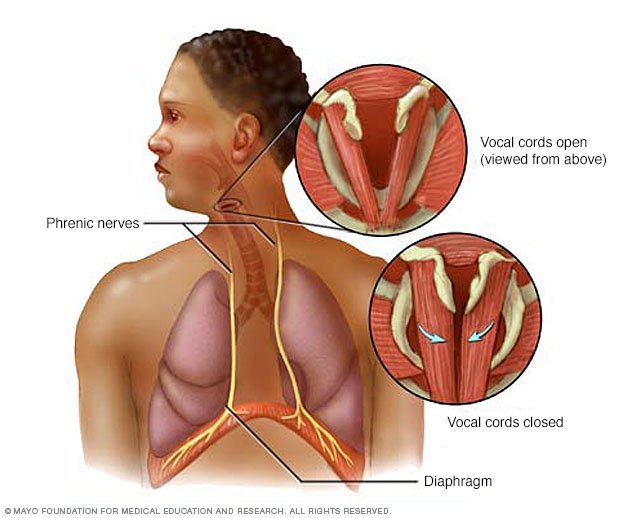In the field of medicine just like any other thing in life , questions always abound. I was recently asked by my dad what the cause and implication of a hiccup was. Honestly before then i hadn't given much thought to it because it hardly ever came up during my time in medical school. Well , am glad to have this as my first educative post as a medical doctor
Hiccups are just a nuisance and all we need is a little relief from them. With this in mind lets have a look at some facts about hiccups to aid our understanding.
Fast facts on hiccups
- The exact cause of hiccups remains unclear, but chronic hiccups are linked to a wide range of medical conditions, including stroke and gastrointestinal problems.
- Most cases resolve without treatment, but prolonged hiccups can lead to complications such as insomnia and depression.
- If hiccups last for longer than 48 hours, the person should see a doctor, who may prescribe muscle relaxants.
- Avoiding alcohol and not eating too quickly can help reduce the chance of hiccups.
What causes hiccups ?

The National Organization for Rare Diseases (NORD) describes hiccups as “an involuntary spasmodic contraction of the muscle at the base of the lungs (diaphragm) followed by the rapid closure of the vocal cords.”
It may sometimes be accompanied by a slight tightening sensation in your chest, abdomen or throat.
The most common triggers for hiccups that last less than 48 hours include:
- Drinking carbonated beverages
- Drinking too much alcohol
- Eating too much
- Excitement or emotional stress
- Sudden temperature changes
- Swallowing air with chewing gum or sucking on candy
Hiccups from these are referred to as acute hiccups and so can resolve on their own. However , you will need to see a doctor when hiccups persist for more than 48 hours or when it's so severe that it interferes with breathing, eating or sleeping. The causes of Chronic hiccups will be explored by your doctor by carry out a thorough examination on your body systems.
A number of medical conditions have been linked to chronic hiccups include:
- Gastrointestinal conditions, including inflammatory bowel disease (IBD), a small bowel obstruction, or gastroesophageal reflux disease (GERD)
- respiratory conditions, such as pleurisy of the diaphragm, pneumonia, or asthma
- excessive and habitual consumption of alcohol
- conditions that affect the central nervous system (CNS), including a traumatic brain injury (TNI), encephalitis, a brain tumor, or stroke
conditions that irritate the vagus nerve, such as meningitis, pharyngitis, or goitre - psychological reactions, including grief, excitement, anxiety, stress, hysterical behavior, or shock
- conditions that affect metabolism, including hyperglycemia, hypoglycemia, or diabetes
- cancer, either as a result trusted source of damage caused by the condition or as a side effect of treatment, such as chemotherapy.
conditions of the autonomic nervous system, which also affects breathing, sweating, heartbeat, hiccups, and coughing
Treatment
In resolving hiccups, we start we simple non-pharmacological tips. Though their effectiveness is uncertain, they do help at times.
Tips for getting rid of hiccups
The following steps may help get rid of hiccups:
- Sip ice-cold water slowly or gargle with very cold water.
- Hold your breath for a short time, breath out, then do it again three or four times, and do this every 20 minutes.
- While you swallow, place gentle pressure on your nose.
- Place gentle pressure on your diaphragm.
- Bite on a lemon.
- Swallow some granulated sugar.
- Take a tiny amount of vinegar, just enough to taste.
- Breathe in and out of a paper bag, but never a plastic bag and never covering your head with the bag.
- Sit down and hug your knees as close to your chest as possible for a short time.
- Lean forward so that you gently compress your chest.
- Alternative therapies may include acupuncture and hypnosis.
- Gently pull on the tongue.
- Rub the eyeballs.
- Put your finger in your throat to trigger a gag reflex.
- Many of these tips have been passed down through generations. They may be effective, but there is little research to support their use.
Yea !!!! Haha !!! Some of these tips just sound a bit funny but well am sure they do work in some cases. However if they fail, you can get a prescription from your doctor which will probably involve one or more of the following drugs. The choice of drug depends on the suspected cause.
Medications
The following medications may help if there appears to be no underlying health condition:
- baclofen (Lioresal), a muscle relaxant
- gabapentin, an anti-seizure medication that is commonly prescribed for
neuropathic pain, this can help alleviate the symptoms of hiccups
If these do not work, the following are recommended:
- chlorpromazine or haloperidol, antipsychotic medications that can alleviate hiccups
- metoclopramide (Reglan), an anti-nausea medication, that may help some people with hiccups
- Ephedrine or ketamine can treat hiccups related to anesthesia or surgery.
The doctor will usually prescribe a low-dose, two-week course of medication. They may gradually increase the dosage until the hiccups are gone.
The course and dosage will depend on the severity of hiccups, the patients’ general health, and their age.
Surgery
In severe cases that have not responded to other treatment, a surgeon may inject medication into the phrenic nerve to temporarily block the nerve’s action, or severe the phrenic nerve in the neck.
REFERENCES
- Medical news today;What you need to know about hiccups Article source
- Mayo Clinic : Hiccups Article source

Nice image
Downvoting a post can decrease pending rewards and make it less visible. Common reasons:
Submit